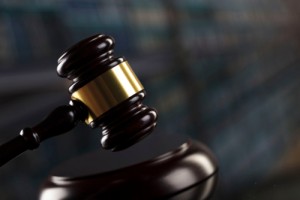Lawyer who created digital child porn as expert witness owes $300K to women whose photos he used

Image from Shutterstock.
An Ohio lawyer’s expert witness work on behalf of accused child pornography defendants has created a $300,000 liability for him that cannot be excused in bankruptcy, a federal appeals court has ruled.
The bankruptcy appellate panel of the 6th U.S. Circuit Court of Appeals at Cincinnati ruled against lawyer Jack Boland of Broadview Heights in a Feb. 13 opinion, Cleveland.com reports. As a result of the decision, Boland is on the hook for a $300,000 judgment obtained by two women whose childhood photos he used to create fake child pornography as an expert witness.
The Associated Press also has coverage.
The lawyer, then known as Dean Boland, had downloaded stock photos of children in innocent poses in 2004 and manipulated them to create child pornography. Boland used his fake child porn as an expert witness for criminal defendants who argued they didn’t knowingly view or possess child pornography. Boland would show the before and after images and talk about the ability to alter images with a computer.
In one federal trial in 2004, the judge ordered Boland to delete the images from his computer after the prosecutor suggested that Boland had himself committed a crime by creating and displaying the images. Boland entered into a pretrial diversion agreement with federal prosecutors in 2007 in which he acknowledged creating the images for his trial work.
In September 2007, Boland was sued by two minors whose photos he had used. They were each awarded $150,000 in October 2011, and the 6th Circuit affirmed in a 2012 decision that rejected his First Amendment arguments.
Boland filed for Chapter 7 bankruptcy in 2016. A bankruptcy judge ruled that the judgments could be discharged in bankruptcy because there was no evidence that he intended to harm the children whose photos were used.
The bankruptcy appellate panel disagreed. The Bankruptcy Code doesn’t allow for the discharge of debt for willful or malicious injury by the debtor, the court said. An act is malicious if it is in conscious disregard of one’s duties or without just cause.
“In this case, the evidence from the trial unquestionably established that Boland, of all individuals, fully understood that his intentional creation, possession and use of the morphed pornographic images of the children invaded the children’s interests in their privacy and reputation,” the appellate panel said.
“As a lawyer and expert witness in the field of criminal defense in child pornography cases, Boland was aware that the use of identifiable real children in pornographic images was proscribed. … It similarly follows that based on his expertise, Boland was aware of the harms inherent in violating child pornography laws.”
Boland had argued that his use of the images wasn’t malicious because he was using them for legal purposes as an expert witness. When reached by the ABA Journal, he said he has no comment.
Write a letter to the editor, share a story tip or update, or report an error.


